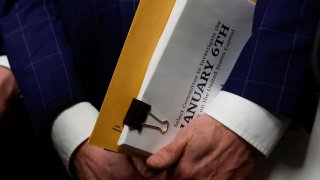
- The House select committee investigating the Jan. 6, 2021, Capitol riot released its long-awaited final report.
- The report was issued days after the panel voted to refer former President Donald Trump to the Department of Justice Department for investigation and possible prosecution.
- The panel has begun sharing evidence with the DOJ, which already was probing Trump for trying to reverse his 2020 election loss to President Joe Biden.
The Jan. 6 House select committee released its long-awaited final report Thursday, capping an 18-month probe of the 2021 breach of the U.S. Capitol by a violent mob of supporters of former President Donald Trump.
The damning 845-page report was issued three days after the bipartisan committee voted unanimously to refer Trump to the Department of Justice for criminal investigation and possible prosecution over his efforts to overturn his 2020 election loss to President Joe Biden.
Among the recommendations is that congressional committees with such authority consider creating a "formal mechanism for evaluating whether to bar" Trump from holding future federal office due to evidence that he violated his constitutional oath to support the U.S. Constitution while engaging in an insurrection.
We've got the news you need to know to start your day. Sign up for the First & 4Most morning newsletter — delivered to your inbox daily. >Sign up here.
The report comes weeks after Trump announced that he will seek the Republican nomination for president in 2024.
"Our country has come too far to allow a defeated President to turn himself into a successful tyrant by upending our democratic institutions, fomenting violence, and, as I saw it, opening the door to those in our country whose hatred and bigotry threaten equality and justice for all Americans," wrote committee Chairman Rep. Bennie Thompson, D-Miss., in a foreword to the report.
The committee's vice chair, Rep. Liz Cheney, R-Wyo., wrote in her own foreword, "Every President in our history has defended this orderly transfer of authority, except one."
"January 6, 2021 was the first time one American President refused his Constitutional duty to transfer power peacefully to the next," Cheney wrote.
Money Report
The first of the report's eight chapters is titled "The Big Lie," a reference to Trump's repeated false claims that he had won the election.
That chapter notes that Trump made efforts even before Election Day to "delegitimize the election process" by suggesting it would be marred by ballot fraud, particularly in connection with mail-in voting whose use was expanded due to the Covid-19 pandemic.
The second chapter, titled "I Just Want to Find 11,780 Votes," details Trump's attempt to subvert the Electoral College, the body that actually chooses the winner of presidential elections on the basis of candidates' popular vote victories in individual states, and portions of two states.
The title refers to what Trump said to Georgia Secretary of State Brad Raffensperger in a Jan. 2, 2021, phone call, during which the president pressured Raffensperger to take steps that would invalidate Biden's popular victory in that state.
That chapter also details the widespread campaign by Trump and his allies to get Republican-controlled legislatures in states that Biden had won to not certify the election results, or to replace slates of Electoral College electors.
"The Select Committee estimates that in the two months between the November election and the January 6th insurrection, President Trump or his inner circle engaged in at least 200 apparent acts of public or private outreach, pressure, or condemnation, targeting either State legislators or State or local election administrators, to overturn State election results," the report says.
"This included at least: 68 meetings, attempted or connected phone calls, or text messages, each aimed at one or more State or local officials; 18 instances of prominent public remarks, with language targeting one or more such officials; and 125 social media posts by President Trump or senior aides targeting one or more such officials, either explicitly or implicitly, and mostly from his own account," the report says.
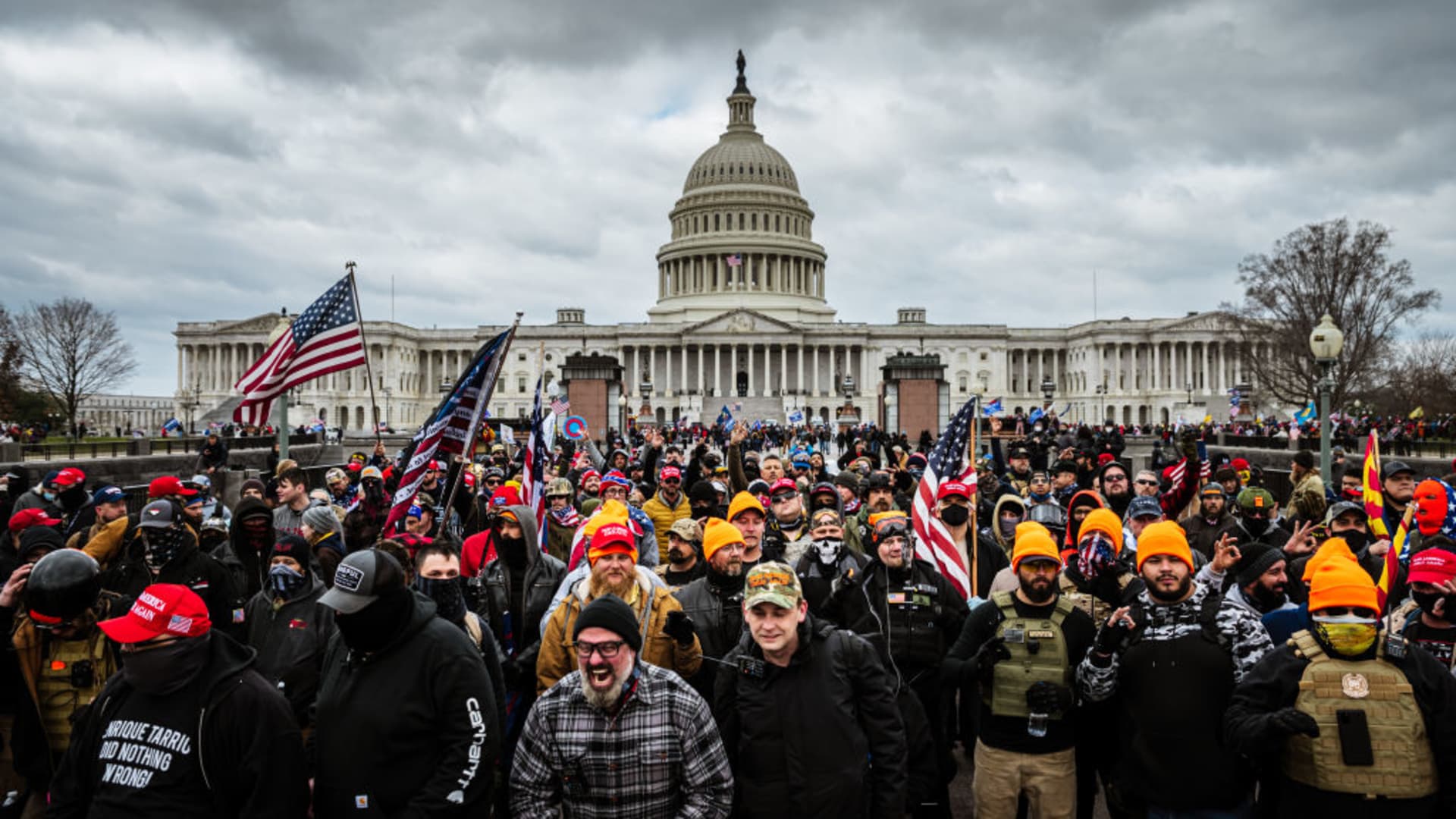
The next chapters outline how Trump and his allies aimed to get alternate slates of electors for him presented to Congress over the actual slates that Biden won, their efforts to get the Department of Justice to cast doubt on the integrity of the election, and to convince then-Vice President Mike Pence to refuse to certify several states' Electoral College slates.
The plan to pressure Pence was designed to throw the decision on who would win the election into the House of Representatives. Despite Democrats holding a majority of the seats in that chamber at the time, Republicans could have delivered the victory to Trump because they held the majority of state delegations, which each get a single vote under the system.
The last three chapters focus on the lead-up to the Capitol riot, Trump's "dereliction" of duty by refusing to call off the mob and an analysis of the attack on the Capitol.
Cheney, in her foreword to the report, noted, "What most of the public did not know before our investigation is this: Donald Trump's own campaign officials told him early on that his claims of fraud were false."
"Donald Trump's senior Justice Department officials — each appointed by Donald Trump himself —investigated the allegations and told him repeatedly that his fraud claims were false," Cheney wrote.
"Donald Trump's White House lawyers also told him his fraud claims were false. From the beginning, Donald Trump's fraud allegations were concocted nonsense, designed to prey upon the patriotism of millions of men and women who love our country."
Trump in a series of social media posts overnight called the select committee's report "highly partisan" and repeated the false claim that the 2020 election was rigged against him.
In its recommendations, the Jan. 6 committee urged the Senate to pass the Electoral Count Act, which the House already has approved. The act would reaffirm that a vice president has no authority or discretion to reject an official slate of presidential electors submitted by the governors of their states.
The panel also said courts and bar disciplinary bodies that regulate conduct by lawyers "should continue to evaluate the conduct of attorneys described in this Report."
"Attorneys should not have the discretion to use their law licenses to undermine the constitutional and statutory process for peace-fully transferring power in our government," the report says.
In a recommendation titled "Violent Extremism," the report says, "Federal Agencies with intelligence and security missions, including the Secret Service, should ... move forward on whole-of-government strategies to combat the threat of violent activity posed by all extremist groups, including white nationalist groups and violent anti-government groups while respecting the civil rights and First Amendment civil liberties of all citizens."
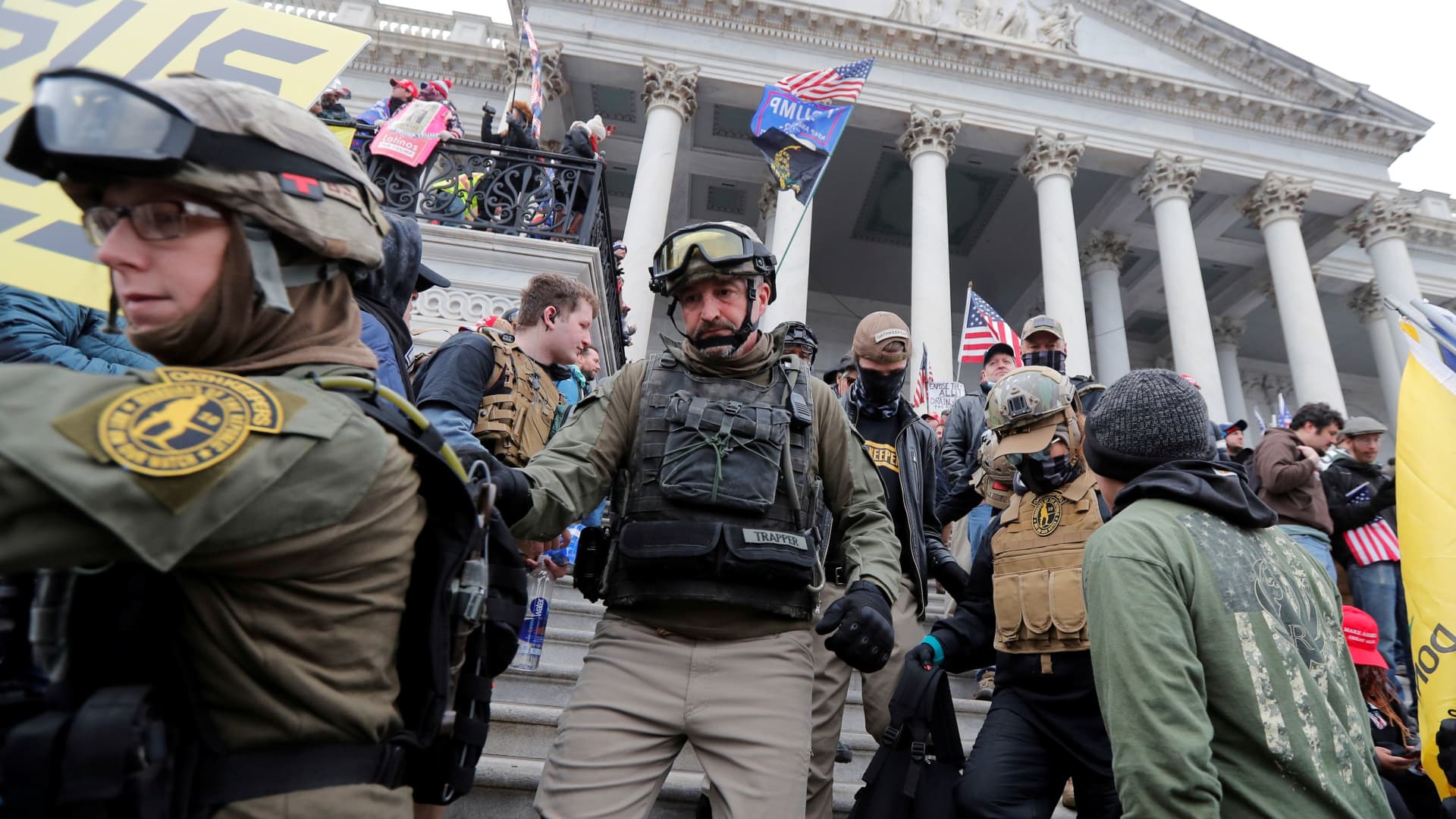
The Jan. 6 panel has already begun sharing its evidence with the DOJ, which last month appointed a special counsel to investigate whether Trump or others unlawfully interfered with the transfer of power to Biden.
Without Trump's encouragement, the Jan. 6 riot, "would have never occurred," the panel's chair Thompson, said in an interview earlier Thursday with MSNBC. "It would have been the normal transfer of power that we do every four years when there is a presidential election."
"Sometimes you win, sometimes you lose, but under no circumstances do you tear the city hall up or the courthouse up, and, God forbid, the United States Capitol," Thompson said. "It was just something that I think for most Americans it was beyond imagination. ... And there are still a lot of people who can't fathom why our people would do that."
Both the DOJ and House probe are focused, among other things, on the events of Jan. 6, 2021, when hundreds of Trump's backers stormed the U.S. Capitol and forced lawmakers and Pence to flee the chambers of Congress.
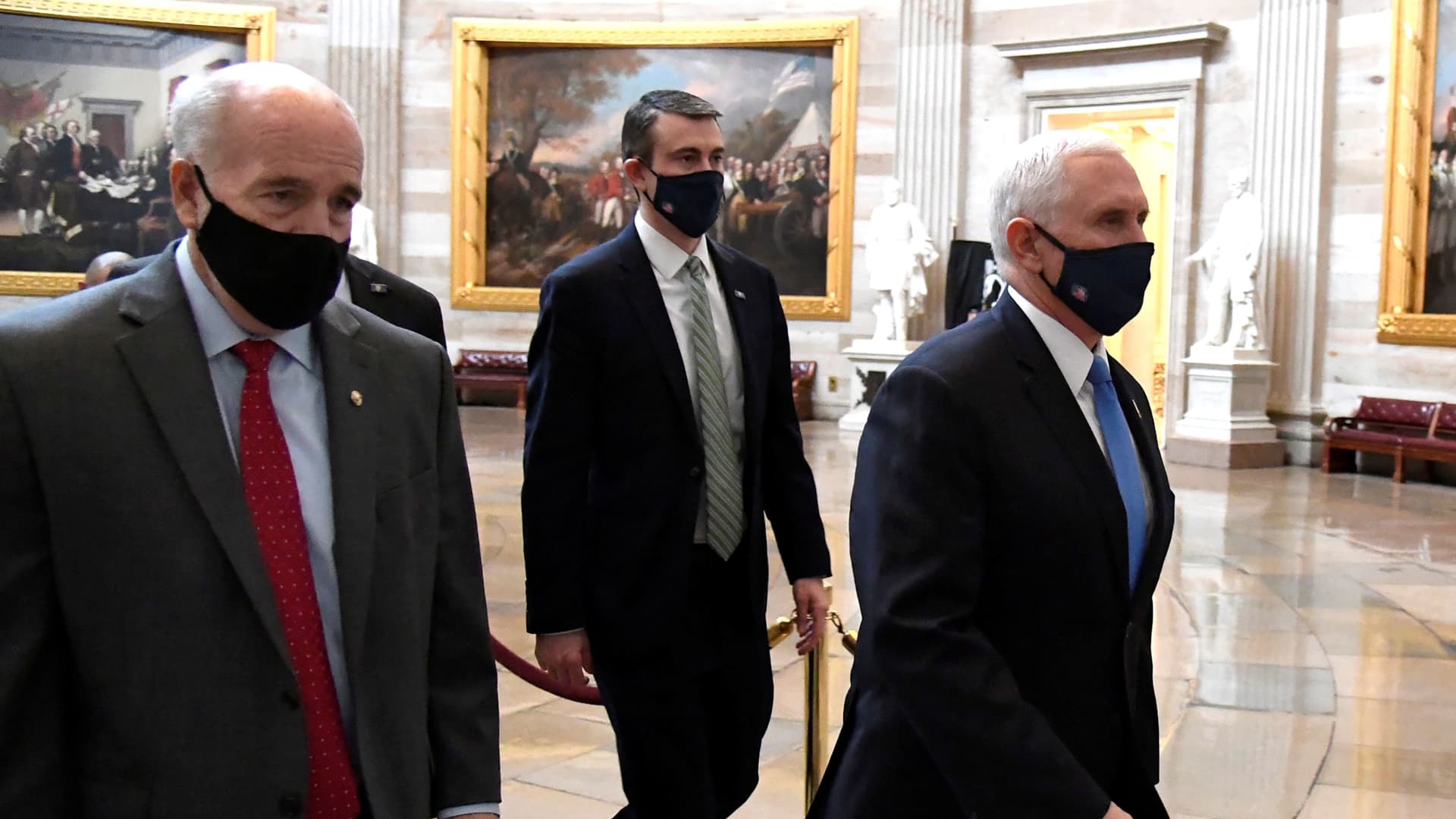
The invasion disrupted a joint session of Congress that was being held to confirm Biden's victory in the Electoral College.
Pence, who was presiding over that session, resisted pressure by Trump and others to refuse to accept the Electoral College slates of several swing states that had given Biden his margin of victory.
The House committee conducted more than 1,000 witness interviews, which includes ones with Trump's White House aides and lawyers, several of his adult children, and his close allies. The panel also compiled hundreds of thousands of documents as part of its investigation.
Trump spread false claims of election fraud before and after the 2020 election and pursued numerous attempts to reverse his loss to Biden in the weeks after Election Day. His public campaign to do so culminated with a rally outside the White House on Jan. 6, 2021, where he urged the crowd to march with him to the Capitol to press Congress to undo the election results.
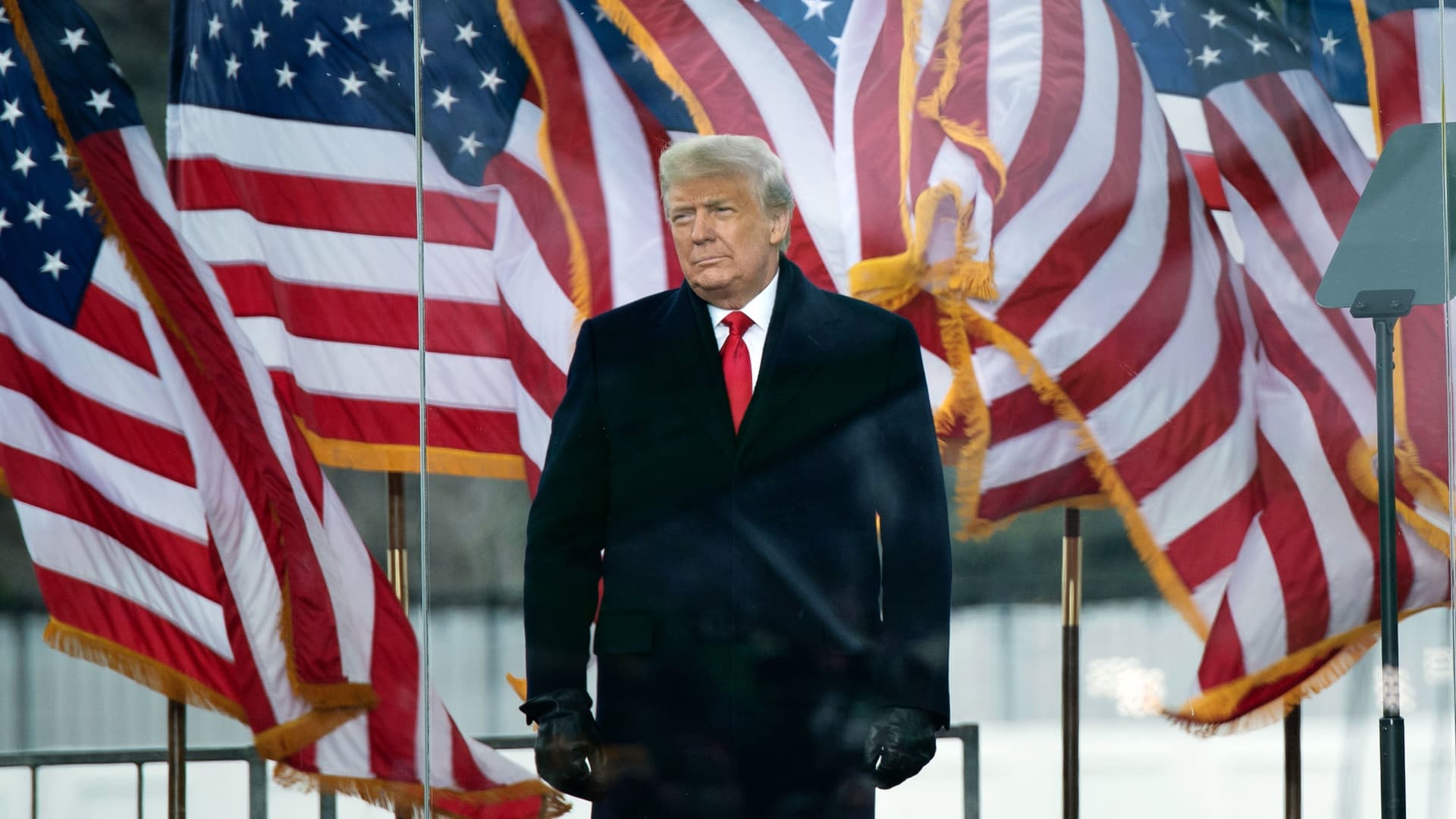
Trump never marched to the Capitol that day, but instead spent hours in the White House as his supporters attacked police officers inside and outside the Capitol, and swarmed through the halls of Congress. Trump did not publicly urge the mob to leave the Capitol until late in the afternoon that day, despite calls by senior officials in the White House that he do so.
"You're the commander in chief. You've got an assault going on on the Capitol of the United States of America, and there's nothing?" Gen. Mark Milley, chairman of the Joint Chiefs of Staff, testified to the House committee.
"No call? Nothing? Zero?" Milley added.
In its vote Monday, the committee referred Trump to the DOJ for potential prosecution for four crimes, including conspiracy to defraud the U.S. and inciting an insurrection.
Separately, a state grand jury in Georgia is collecting evidence for a criminal probe of Trump by the Fulton County district attorney's office for his attempt to get Georgia election officials to undo Biden's election victory in that state.
Trump also is under criminal investigation by the DOJ for the removal of government documents, some of them highly classified, from the White House when he left office.






